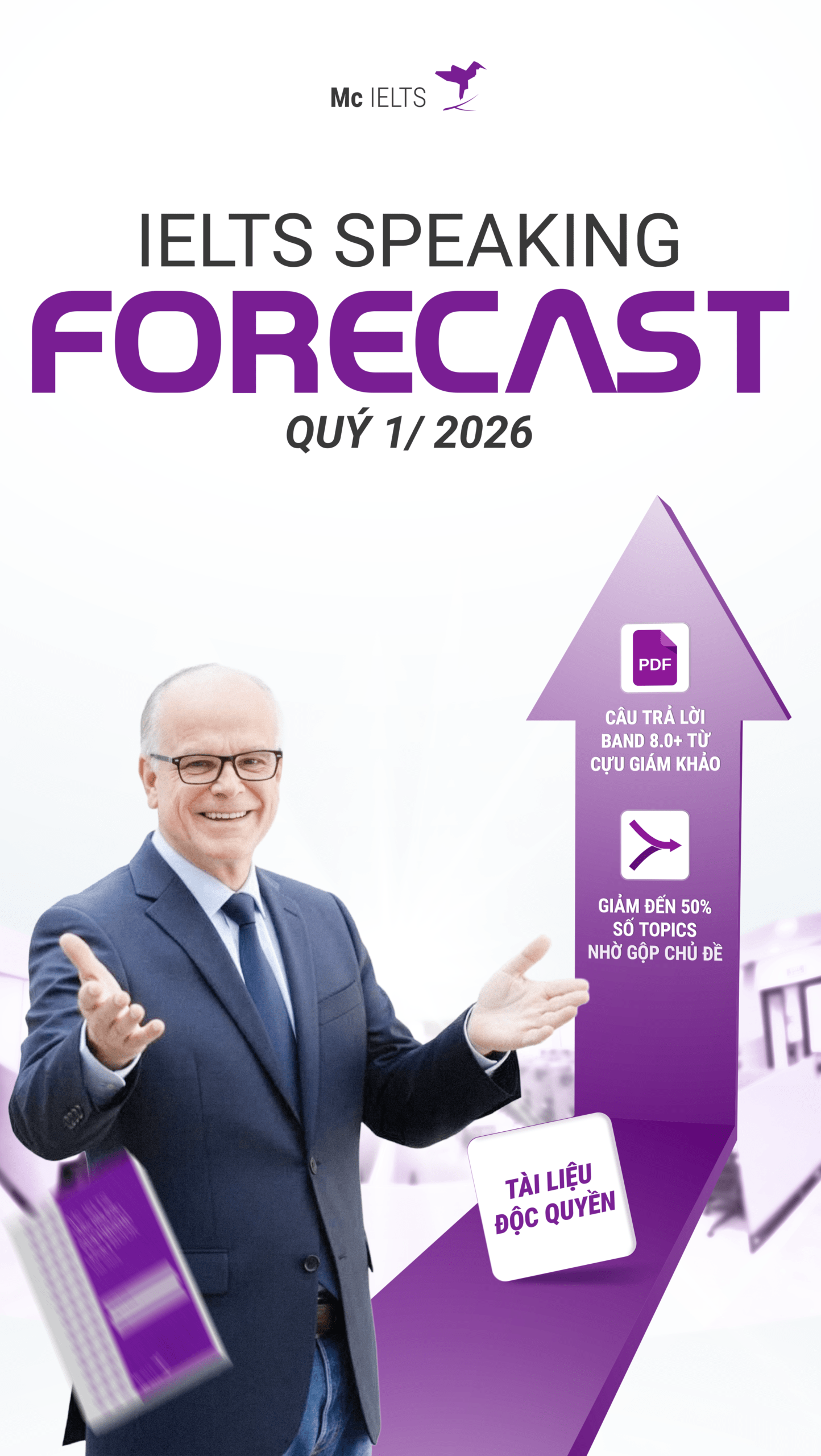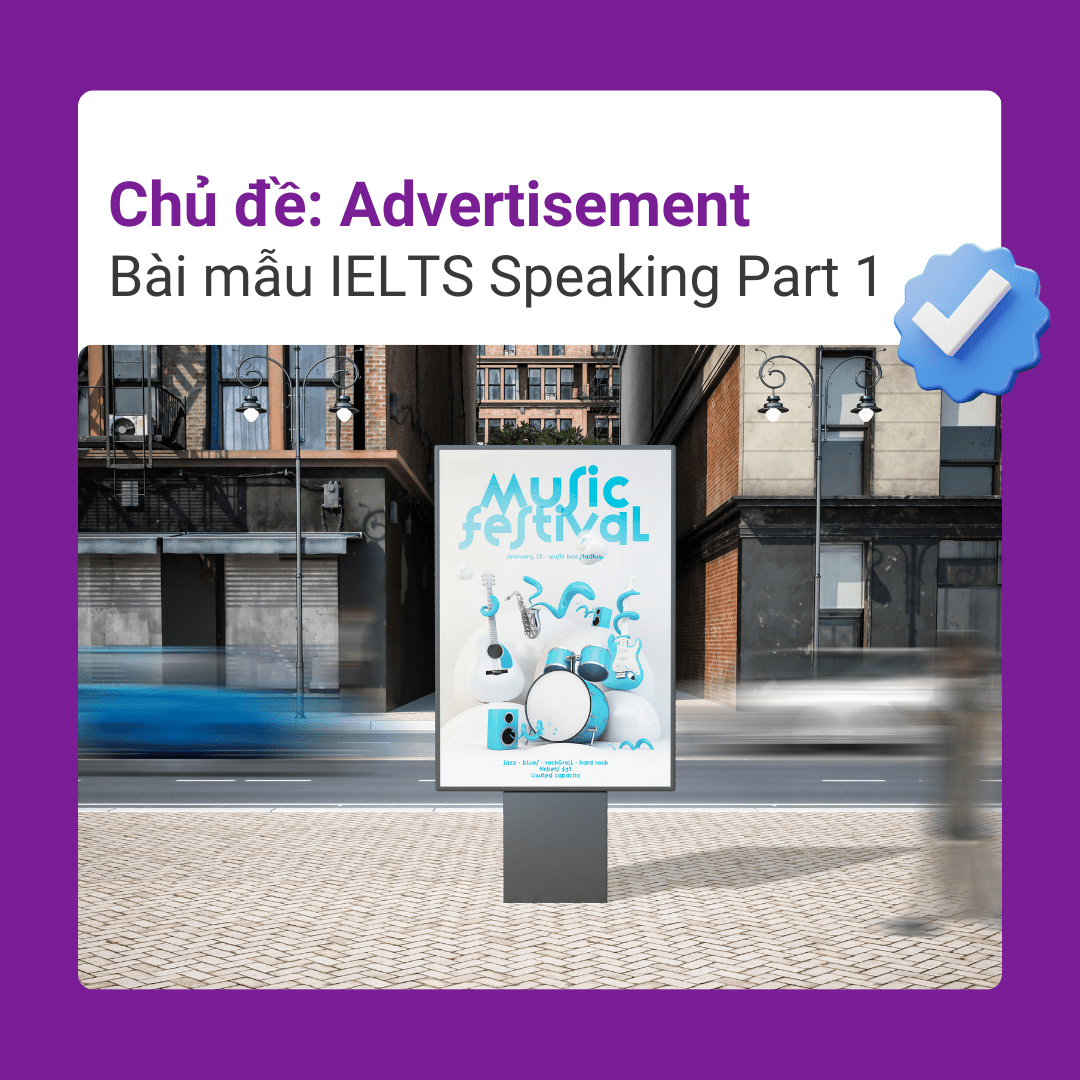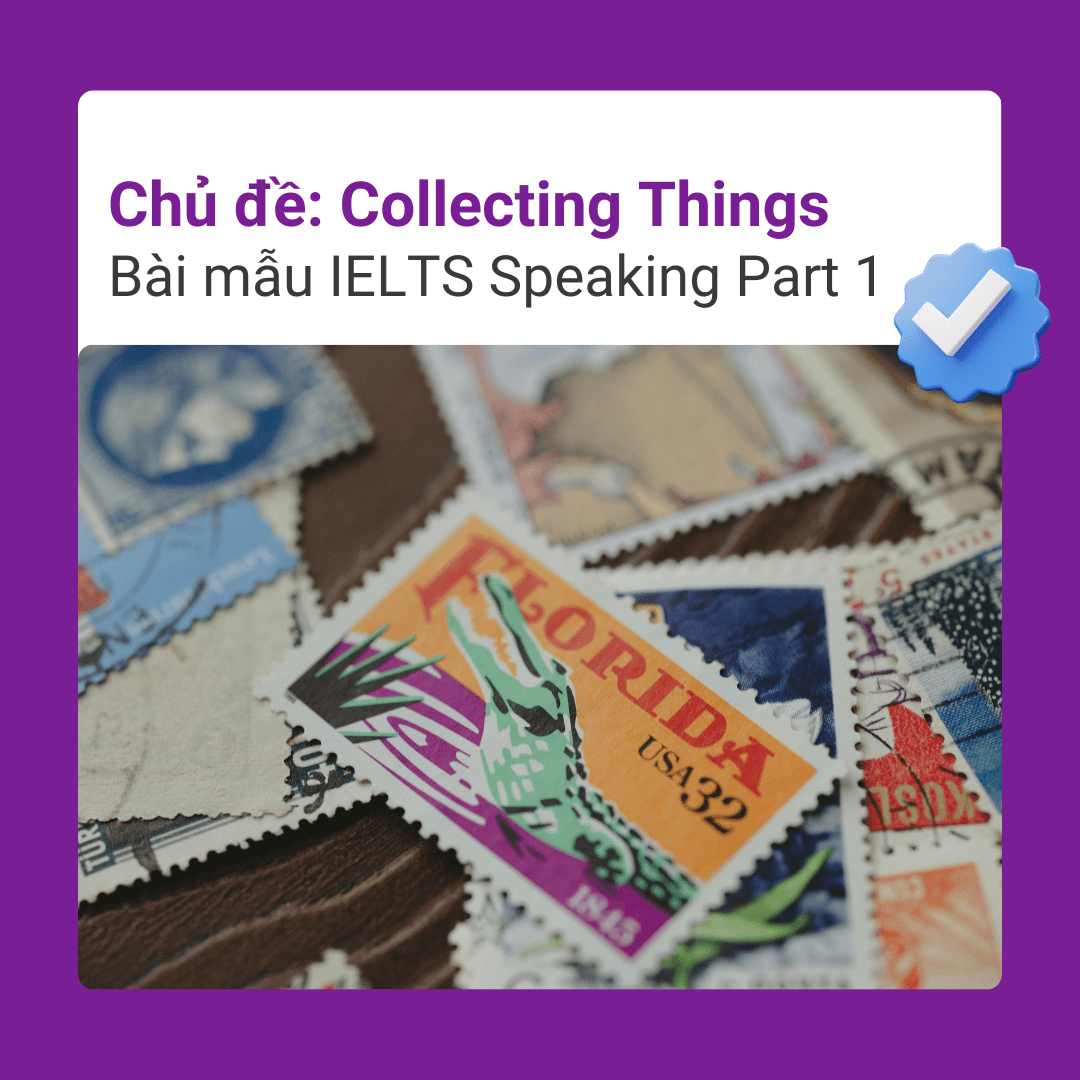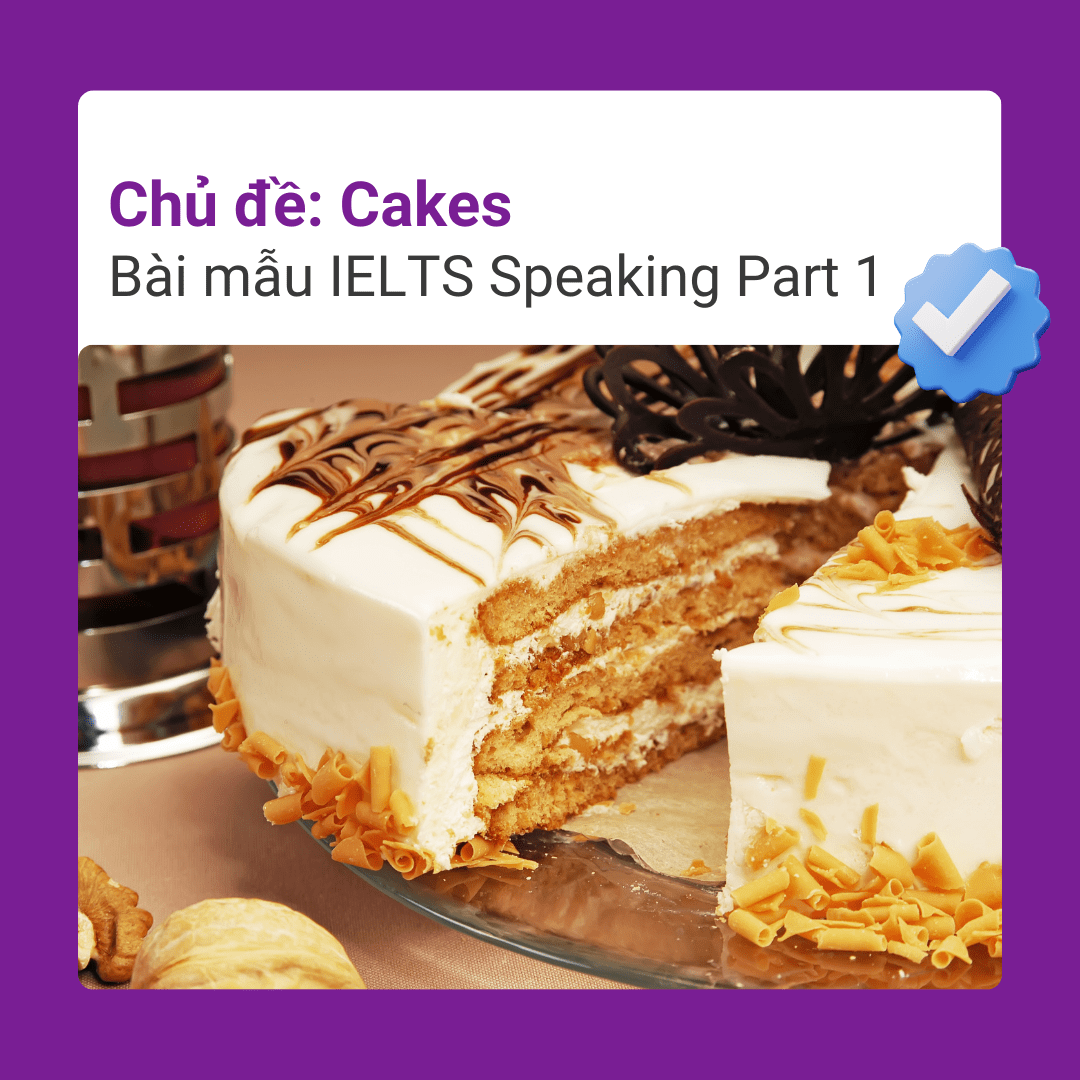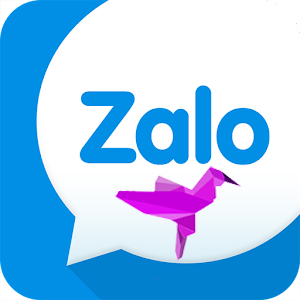IELTS Speaking Part 2 & 3: A Foreigner Fluent in Chinese
 18/03/2025
18/03/2025
 Tác giả : Phong Tran
Tác giả : Phong Tran

IELTS Speaking Part 2 & 3: A Foreigner Fluent in Chinese
Hướng dẫn trả lời IELTS Speaking Part 2 (Part 2 Answer Guide)
| A Foreigner Fluent in Chinese
You should say:
|
Answer 1
Today, I’d like to talk about a foreigner who impressively speaks Chinese very well. His name is John, an American from New York. John’s journey with the Chinese language began when he enrolled in a Mandarin course at his university. Fascinated by Chinese culture and history, he immersed himself fully in learning the language.
John’s approach to learning Chinese was quite systematic. He started with basic characters and gradually moved to complex sentences. What set him apart was his dedication to practicing speaking with native speakers. He participated in language exchange programs and even spent a semester studying in Beijing. This immersive experience, combined with his perseverance, significantly improved his fluency.
The reason John speaks Chinese so well is his consistent practice and exposure to the language. He didn’t just rely on textbooks; he interacted with Chinese people, watched Chinese movies, and read Chinese literature. His ability to speak Chinese fluently is a testament to his hard work and passion for the language and culture.
Giải nghĩa từ vựng:
Impressively (Adverb)
Định nghĩa: Ấn tượng, đáng chú ý.
Example: She completed the project impressively quickly.
Immersed (Verb)
Định nghĩa: Đắm chìm, chìm đắm.
Example: He was completely immersed in his studies.
Systematic (Adjective)
Định nghĩa: Có phương pháp, có hệ thống.
Example: She approached the problem in a systematic manner.
Dedication (Noun)
Định nghĩa: Sự tận tâm, cống hiến.
Example: His dedication to his work is admirable.
Perseverance (Noun)
Định nghĩa: Sự kiên trì, bền bỉ.
Example: Her perseverance was key to her success.
Fluency (Noun)
Định nghĩa: Sự lưu loát, trôi chảy.
Example: He achieved fluency in Spanish in just two years.
Testament (Noun)
Định nghĩa: Bằng chứng, chứng cứ.
Example: The large attendance at the event was a testament to its popularity.
Passion (Noun)
Định nghĩa: Đam mê, niềm hứng thú.
Example: She has a passion for painting and art.
Answer 2
I want to describe a foreigner who has mastered Chinese exceptionally well. Her name is Anna, and she’s from Germany. Anna’s interest in the Chinese language sparked during her high school years, influenced by her love for Chinese cinema. She decided to take her interest further by studying Chinese at university.
Anna’s learning method was quite immersive. She didn’t just focus on grammar and vocabulary; she also emphasized understanding the cultural context behind the language. She regularly attended Chinese cultural festivals and practiced calligraphy to familiarize herself with Chinese characters. Moreover, she frequently communicated with Chinese friends online, which greatly enhanced her speaking skills.
Anna’s proficiency in Chinese is remarkable because of her holistic approach to learning. She didn’t just learn the language in isolation; she embraced the culture, history, and people. This comprehensive exposure, coupled with her enthusiasm and dedication, is why she speaks Chinese so proficiently.
Giải nghĩa từ vựng:
Mastered (Verb)
Định nghĩa: Thành thạo, làm chủ.
Example: He has mastered three foreign languages.
Sparked (Verb)
Định nghĩa: Khơi nguồn, bắt đầu.
Example: The novel sparked her interest in history.
Immersive (Adjective)
Định nghĩa: Chìm đắm, toàn diện.
Example: She found the immersive language program very effective.
Cultural context (Noun)
Định nghĩa: Bối cảnh văn hóa.
Example: Understanding the cultural context is important in language learning.
Calligraphy (Noun)
Định nghĩa: Thư pháp.
Example: She took classes in Chinese calligraphy to improve her writing.
Proficiency (Noun)
Định nghĩa: Sự thành thạo, khả năng giỏi.
Example: His proficiency in Japanese was impressive.
Holistic (Adjective)
Định nghĩa: Toàn diện, tổng thể.
Example: The holistic approach to health considers both mind and body.
Enthusiasm (Noun)
Định nghĩa: Sự hăng hái, nhiệt huyết.
Example: Her enthusiasm for learning is contagious.
Hướng dẫn trả lời IELTS Speaking Part 3 (Part 3 Answer Guide)
What foreign languages do Vietnamese children learn?
Answer 1: In Vietnam, English is the most prevalent foreign language taught to children, often starting from a young age as part of the school curriculum. Additionally, some schools offer other languages like French, Chinese, or Japanese, influenced by Vietnam’s historical connections and economic relations with these countries. It’s also noteworthy that in recent years, there has been a surge in interest for languages like German and Russian, reflecting a diversification in Vietnam’s international relations. Moreover, these additional language options cater to the varied interests of students and their aspirations for global engagement.
Giải nghĩa từ vựng:
Curriculum (Noun)
Định nghĩa: Chương trình giáo dục, học.
Example: English is a significant part of the educational curriculum in Vietnam.
Historical tie (Noun Phrase)
Định nghĩa: Mối quan hệ lịch sử.
Example: Languages like French are taught due to Vietnam’s historical ties with France.
Economic relation (Noun Phrase)
Định nghĩa: Mối quan hệ kinh tế.
Example: The choice of languages like Chinese and Japanese in schools is influenced by economic relations.
Global engagement (Noun Phrase)
Định nghĩa: Sự tham gia hoạt động trên phạm vi toàn cầu.
Example: Learning multiple languages prepares students for global engagement.
Answer 2: Well, besides English as the most popular language in Vietnam, there has been an increasing interest among Vietnamese children in learning languages like Korean and Spanish. This is attributed to the growing influence of Korean pop culture and the global importance of Spanish. Such choices reflect the evolving cultural and economic landscapes and the desire to connect with a broader global community. For example, the rising popularity of Spanish language learning can be linked to the growing tourism and business ties with Spanish-speaking countries. Furthermore, the appeal of Korean culture, particularly K-pop and K-dramas, has sparked a keen interest in learning Korean to better understand and appreciate this cultural phenomenon.
Giải nghĩa từ vựng:
Growing interest (Noun Phrase)
Định nghĩa: Sự quan tâm ngày càng tăng.
Example: There is a growing interest in learning Korean among Vietnamese youth.
Global significance (Noun Phrase)
Định nghĩa: Tầm quan trọng toàn cầu.
Example: Spanish is gaining popularity due to its global significance.
Cultural landscape (Noun Phrase)
Định nghĩa: Bối cảnh văn hóa.
Example: The cultural landscape influences language learning trends.
Cultural phenomenon (Noun Phrase)
Định nghĩa: Hiện tượng văn hóa đặc biệt nổi bật.
Example: K-pop is a cultural phenomenon that influences language learning trends.
Why do Vietnamese children learn English?
Answer 1: Vietnamese children learn English primarily because it is viewed as a global language. Mastery of English opens up numerous opportunities for further education and career advancement both in Vietnam and internationally. English proficiency also enables access to a vast array of information and resources available on the internet, predominantly in English. Additionally, English facilitates international travel and cultural exchange, making it easier for Vietnamese youth to connect with people around the world. For example, participating in student exchange programs often requires English skills, which can be a stepping stone to greater cross-cultural understanding and personal growth.
Giải nghĩa từ vựng:
Global language (Noun Phrase)
Định nghĩa: Ngôn ngữ được sử dụng rộng rãi trên toàn thế giới.
Example: English is taught as a global language in Vietnam.
Proficiency (Noun)
Định nghĩa: Trình độ thành thạo, kỹ năng giỏi.
Example: English proficiency is important for academic and professional success.
Resource (Noun)
Định nghĩa: Nguồn thông tin hoặc cung cấp.
Example: English allows access to a wide range of online resources.
Stepping stone (Noun Phrase)
Định nghĩa: Bước đệm, bước chuyển tiếp quan trọng.
Example: Learning English can be a stepping stone to global opportunities.
Answer 2: English is crucial due to globalization and the integration of Vietnam’s economy into the global market. It serves as a key communication tool in international business and trade. Moreover, learning English helps Vietnamese children to engage with global culture, including popular media and entertainment, fostering a broader understanding of the world. Furthermore, English is essential in the tech and science sectors, where much of the cutting-edge research and development is conducted in English. This makes English a vital tool for future innovators and scientists, broadening their horizons and enabling them to contribute significantly to global advancements.
Giải nghĩa từ vựng:
Globalization (Noun)
Định nghĩa: Quá trình tăng cường quan hệ và tương tác giữa các quốc gia trên thế giới.
Example: Globalization has made English an important language in Vietnam.
International relation (Noun Phrase)
Định nghĩa: Mối quan hệ giữa các quốc gia trên phạm vi quốc tế.
Example: Proficiency in English is crucial for engaging in international relations.
Global culture (Noun Phrase)
Định nghĩa: Văn hóa toàn cầu, phản ánh các xu hướng và tương tác văn hóa trên toàn thế giới.
Example: Learning English allows Vietnamese children to participate in global culture.
Cutting-edge (Adjective)
Định nghĩa: Hiện đại, tiên tiến, mới nhất.
Example: English is important for understanding cutting-edge technology and science.
Innovator (Noun)
Định nghĩa: Người đổi mới, người tạo ra sự đổi mới.
Example: Proficiency in English is crucial for innovators in a globalized world.
Why are so many people learning English?
Answer 1: Many people are learning English due to its status as the lingua franca in various fields such as business, science, technology, and international communication. Proficiency in English provides access to global job opportunities and educational programs. It’s a key language for international collaboration and enables individuals to connect with others worldwide, overcoming language barriers. On top of that, English is often a requirement for higher education and professional certification in many fields, acting as a gateway to advanced knowledge and specialized skills. Furthermore, for travelers and explorers, English is indispensable for navigating different countries and cultures.
Giải nghĩa từ vựng:
Lingua franca (Noun Phrase)
Định nghĩa: Ngôn ngữ giao tiếp chung giữa những người không có ngôn ngữ mẹ đẻ chung.
Example: English is considered the lingua franca in many international contexts.
Prerequisite (Noun)
Định nghĩa: Điều kiện tiên quyết, yêu cầu cần thiết.
Example: English proficiency is a prerequisite for many international jobs.
Language barrier (Noun Phrase)
Định nghĩa: Rào cản ngôn ngữ, khó khăn trong giao tiếp do khác biệt ngôn ngữ.
Example: Learning English helps overcome language barriers in global interactions.
+
Gateway (Noun)
Định nghĩa: Cánh cửa mở ra cơ hội, lối vào.
Example: Proficiency in English acts as a gateway to advanced studies and global opportunities.
Answer 2: English is the predominant language on the internet, media, and entertainment, offering access to a vast amount of information and cultural content. Learning English enhances personal growth by providing new perspectives and understanding different cultures. It’s not just a language skill; it’s a tool for personal and professional development in our interconnected world. Furthermore, English proficiency can be a bridge to understanding global issues and participating in international discussions and forums. It also facilitates the sharing of ideas and experiences across different cultures, promoting global awareness and empathy.
Giải nghĩa từ vựng:
Predominant (Adjective)
Định nghĩa: Chiếm ưu thế, phổ biến nhất.
Example: English is the predominant language used on the internet.
Cultural content (Noun Phrase)
Định nghĩa: Nội dung văn hóa, bao gồm nghệ thuật, âm nhạc, và văn học.
Example: English fluency allows access to a diverse range of cultural content.
Personal growth (Noun Phrase)
Định nghĩa: Sự phát triển cá nhân, tinh thần và tri thức.
Example: Learning English contributes to personal growth by exposing learners to new ideas and cultures.
How can you help children learn English?
Answer 1: To help children learn English, creating a fun and engaging learning environment is crucial. This can be done by incorporating interactive activities such as games, songs, and storytelling in English. Additionally, providing access to English children’s books and educational TV shows or cartoons can spark interest and aid in vocabulary building. Regular practice and positive reinforcement are key to maintaining their interest and progress. Moreover, involving children in English-speaking social groups or clubs can provide them with practical language exposure. Parents and teachers can also play a pivotal role by being active participants in the learning process, such as speaking English at home or organizing English-speaking playdates.
Giải nghĩa từ vựng:
Interactive (Adjective)
Định nghĩa: Tương tác, có sự tham gia hoạt động.
Example: Interactive games make learning English more enjoyable for children.
Vocabulary building (Noun Phrase)
Định nghĩa: Quá trình học và mở rộng từ vựng.
Example: Reading books is effective for vocabulary building in children.
Positive reinforcement (Noun Phrase)
Định nghĩa: Phản hồi tích cực nhằm tăng cường hành vi.
Example: Positive reinforcement encourages children in their language learning journey.
Answer 2: Engaging children in real-life conversations in English is an effective method. This not only improves their speaking and listening skills but also builds confidence. Utilizing technology, such as educational apps and online resources, can also enhance the learning experience. It’s important to tailor the learning approach to the child’s interests and abilities, making the process enjoyable and relatable. Another method is to encourage children to write in English, whether it’s through keeping a journal or composing simple stories. This practice develops their writing skills and encourages creative thinking in English. Additionally, organizing language exchange sessions with English-speaking peers can be an excellent way for children to apply their language skills in a natural setting.
Giải nghĩa từ vựng:
Real-life conversations (Noun Phrase)
Định nghĩa: Cuộc trò chuyện trong tình huống thực tế.
Example: Real-life conversations in English improve practical language skills.
Educational apps (Noun Phrase)
Định nghĩa: Ứng dụng giáo dục, hỗ trợ học tập.
Example: Educational apps can be a fun way for children to practice English.
Language exchange (Noun Phrase)
Định nghĩa: Hoạt động trao đổi ngôn ngữ giữa những người nói các ngôn ngữ khác nhau.
Example: Language exchange sessions provide practical speaking practice for children.
5/ Do you think the way people learn English today is the same as in the past?
Answer 1: The way people learn English today has significantly evolved from the past, mainly due to technological advancements. Online learning platforms, language apps, and virtual classrooms have become prevalent, offering flexibility and a wide range of resources. These tools provide interactive and personalized learning experiences, a contrast to the more traditional, textbook-based methods of the past. In addition to these, the rise of social learning, where students learn through social media platforms and online communities, has added a new dimension to language learning. Lastly, artificial intelligence and language learning software have made it possible to get instant feedback and tailor learning content to individual needs, significantly enhancing the learning process.
Giải nghĩa từ vựng:
Technological advancement (Noun Phrase)
Định nghĩa: Sự phát triển của công nghệ.
Example: Technological advancements have transformed English language learning.
Virtual classroom (Noun Phrase)
Định nghĩa: Lớp học trực tuyến thông qua internet.
Example: Virtual classrooms allow for interactive and accessible language learning.
Personalized learning (Noun Phrase)
Định nghĩa: Phương pháp học tập được điều chỉnh theo nhu cầu cá nhân.
Example: Personalized learning approaches have become more common in language education.
Answer 2: There’s a great emphasis on practical language use and communication skills today. Traditional methods often focused heavily on grammar and written exercises. Now, there’s more focus on speaking and listening skills, using real-life scenarios and conversational practice. Social media and global connectivity also play a role, as they provide opportunities for immersive language experiences and interactions with native speakers, something that was less accessible in the past. Additionally, the integration of cultural learning into language education has become more prevalent, helping learners not only to speak the language but also to understand and appreciate the cultural nuances associated with it.
Giải nghĩa từ vựng:
Practical language use (Noun Phrase)
Định nghĩa: Việc sử dụng ngôn ngữ trong tình huống thực tế, hữu ích.
Example: Modern language teaching focuses on practical language use.
Conversational practice (Noun Phrase)
Định nghĩa: Luyện tập giao tiếp, trò chuyện.
Example: Conversational practice is crucial for fluency in a language.
Global connectivity (Noun Phrase)
Định nghĩa: Sự kết nối trên phạm vi toàn cầu, thông qua internet.
Example: Global connectivity has opened new avenues for language learning.
Nuance (Noun)
Định nghĩa: Khía cạnh tinh tế, chi tiết nhỏ.
Example: Understanding cultural nuances is essential in mastering a language.
What are the benefits of the Internet for people’s learning?
Answer 1: The Internet has revolutionized learning by providing access to a wealth of information and resources. It allows people to learn from diverse sources, including online courses, tutorials, and educational websites. The Internet also breaks geographical barriers, enabling learners to access knowledge from anywhere in the world, often for free or at a low cost. The availability of open-source learning platforms and MOOCs (Massive Open Online Courses) has democratized education, making it accessible to a larger audience. Furthermore, the Internet fosters lifelong learning, allowing individuals to continuously update their skills and knowledge in an ever-changing world.
Giải nghĩa từ vựng:
Wealth of information (Noun Phrase)
Định nghĩa: Lượng lớn thông tin, kiến thức.
Example: The Internet offers a wealth of information for learners.
Geographical barrier (Noun Phrase)
Định nghĩa: Rào cản về địa lý, không gian.
Example: The Internet helps overcome geographical barriers in education.
Tutorial (Noun)
Định nghĩa: Bài giảng, hướng dẫn chi tiết.
Example: Online tutorials are a popular way to learn new skills.
Open-source (Adjective)
Định nghĩa: Mã nguồn mở, miễn phí và có thể được chỉnh sửa bởi người dùng.
Example: Open-source learning platforms offer free access to educational materials.
Lifelong learning (Noun Phrase)
Định nghĩa: Quá trình học tập liên tục suốt đời.
Example: The Internet has made lifelong learning a more attainable goal for many people.
Answer 2: The Internet facilitates interactive and personalized learning experiences. Learners can engage in interactive lessons, participate in forums, and access learning materials that cater to their specific needs and pace. The use of multimedia resources like videos, podcasts, and infographics enhances understanding and retention. Online learning communities also provide support and motivation, creating a collaborative learning environment. Additionally, the Internet has made it easier to track and assess one’s learning progress through various tools and platforms. This allows learners to set goals, monitor their development, and adjust their learning strategies accordingly.
Giải nghĩa từ vựng:
Interactive (Adjective)
Định nghĩa: Tương tác, có sự tham gia hoạt động.
Example: Interactive online courses engage learners effectively.
Personalized learning (Noun Phrase)
Định nghĩa: Phương pháp học tập được điều chỉnh theo nhu cầu cá nhân.
Example: The Internet facilitates personalized learning experiences.
Multimedia resource (Noun Phrase)
Định nghĩa: Tài nguyên sử dụng nhiều phương tiện truyền thông, như video, âm thanh.
Example: Multimedia resources make online learning more dynamic and engaging.
Learning community (Noun Phrase)
Định nghĩa: Cộng đồng học tập, nơi mọi người chia sẻ kiến thức và kinh nghiệm.
Example: Online learning communities offer valuable support and exchange of ideas.
Tự tin chinh phục chủ đề “A Foreigner Fluent in Chinese”
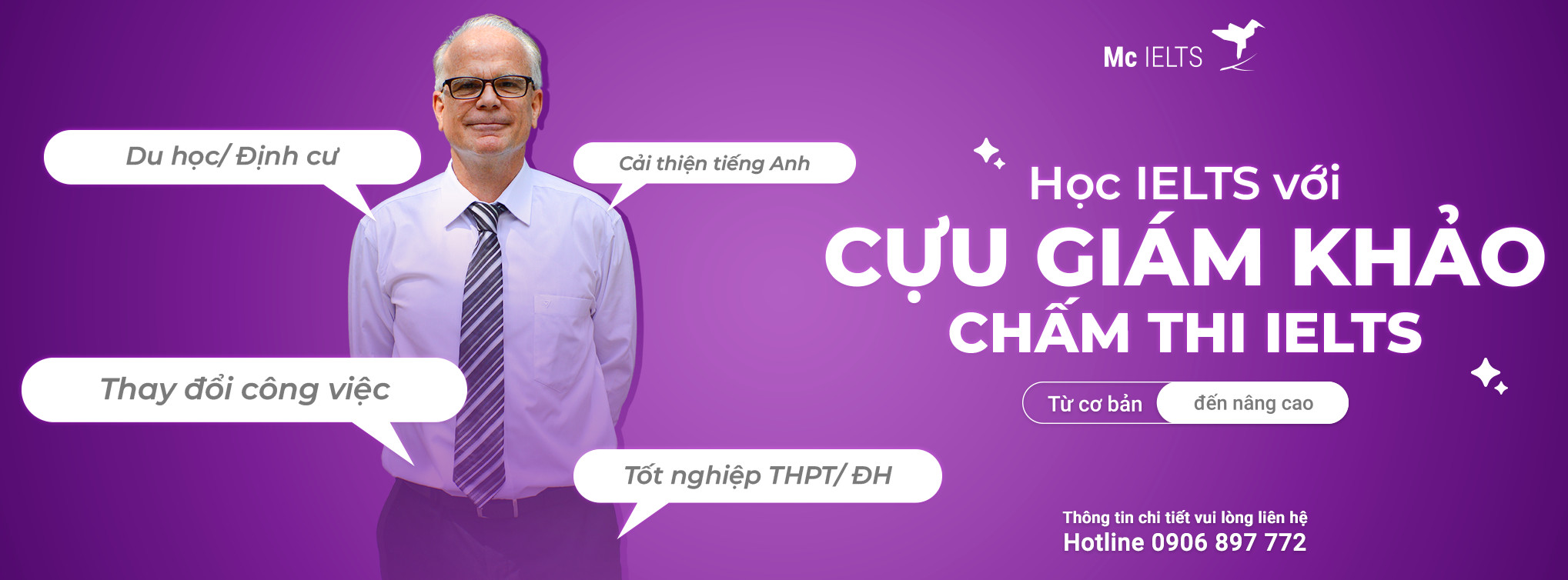
Học IELTS cùng Cựu giám khảo www.mcielts.com
Khi đăng ký học IELTS ở trung tâm Mc IELTS, bạn sẽ được hưởng những quyền lợi tuyệt vời:
- Tặng thêm 6 buổi học 1-1 hàng tuần với cố vấn học tập: Để bạn có thể giải đáp mọi thắc mắc và tăng cường luyện tập cá nhân.
- Học lại MIỄN PHÍ nếu không đạt điểm lên lớp: Bạn không cần lo lắng về chi phí khi phải học lại.
- Tham gia nhóm trao đổi Online trên Facebook: Với sự tham gia của cựu giám khảo IELTS, bạn sẽ nhận được những lời khuyên quý báu và phản hồi chi tiết.
- Kho tài liệu IELTS Online phong phú: Hơn 50 đầu sách đa dạng và bổ ích giúp bạn tự học hiệu quả.
- Hỗ trợ học bù và bảo lưu trong quá trình học: Đảm bảo bạn không bỏ lỡ bất kỳ bài học quan trọng nào.
Chất lượng giảng dạy tại Mc IELTS đã được khẳng định qua hơn 1000 đánh giá xuất sắc từ học viên:
- Đánh giá 4.9/5.0 trên Facebook, xem chi tiết tại đây.
- Đánh giá 4.9/5.0 trên Google, xem chi tiết tại đây.
- Đánh giá 9.2/10 trên Edu2review, xem chi tiết tại đây.

Những con số biết nói
Đặc biệt, Mc IELTS còn cung cấp dịch vụ sửa bài miễn phí Writing và Speaking trong nhóm Facebook với sự tham gia của cựu giám khảo IELTS. Đây là cơ hội tuyệt vời để bạn nhận được những phản hồi chi tiết và cải thiện kỹ năng của mình một cách hiệu quả. Tham gia nhóm tại đây.
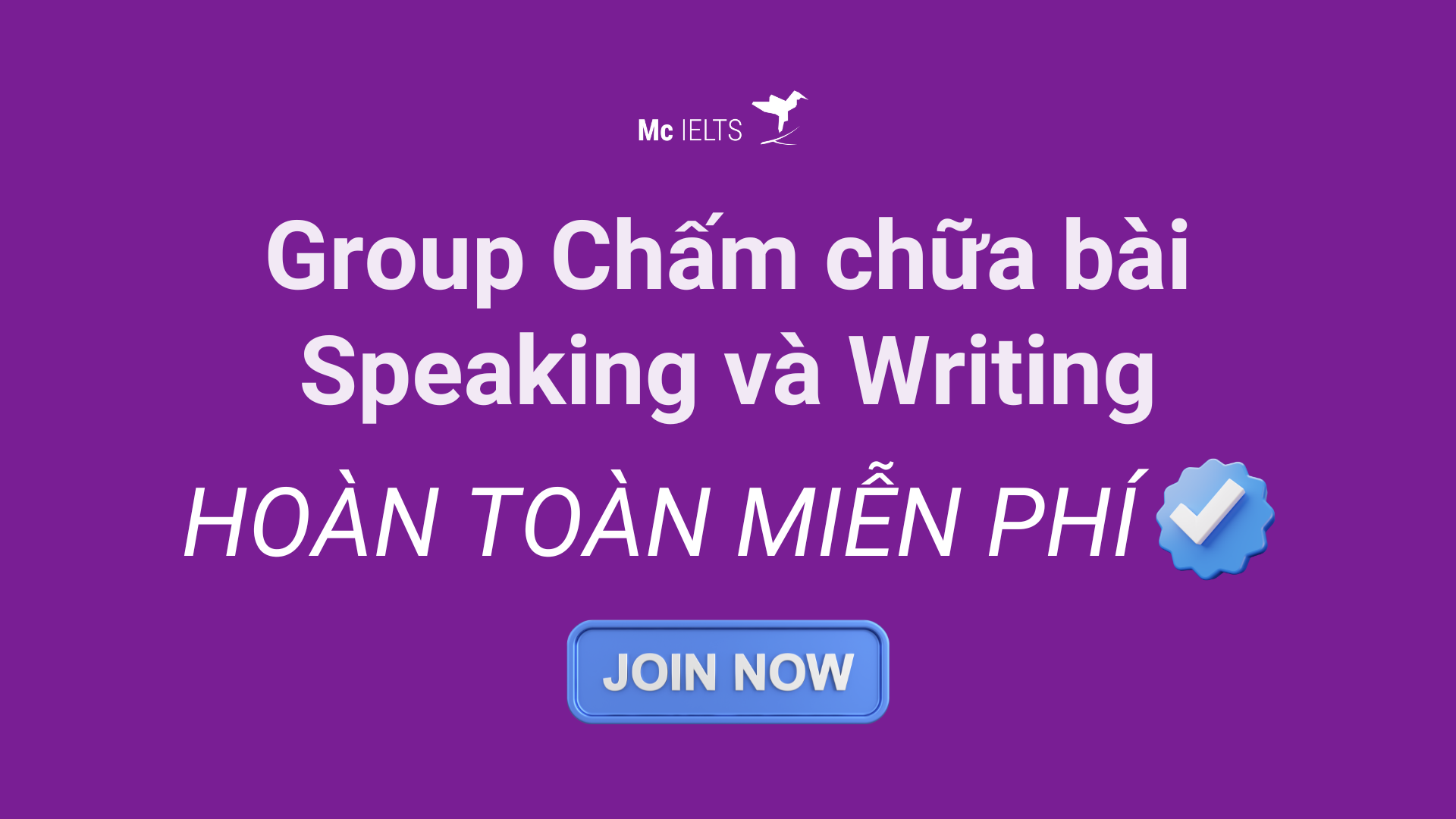
Tham gia nhóm Facebook của Mc IELTS để được cựu giám khảo chấm chữa bài Speaking và Writing hoàn toàn miễn phí
Qua những câu trả lời mẫu và từ vựng chi tiết trong bài viết này, Mc IELTS hy vọng rằng bạn đã có thêm kiến thức và sự tự tin để đối mặt với chủ đề A Foreigner Fluent in Chinese trong phần thi IELTS Speaking Part 2&3.
Để đạt kết quả tốt nhất trong phần thi Speaking, hãy tham gia các khóa học tại Mc IELTS. Với đội ngũ giảng viên là những cựu giám khảo chấm thi IELTS, Mc IELTS sẽ giúp bạn nâng cao kỹ năng và tự tin chinh phục kỳ thi IELTS. ĐĂNG KÝ NGAY hôm nay để nhận được sự hỗ trợ tốt nhất và chuẩn bị vững chắc cho kỳ thi của bạn.
Nhận lộ trình IELTS TỐI ƯU theo yêu cầu








